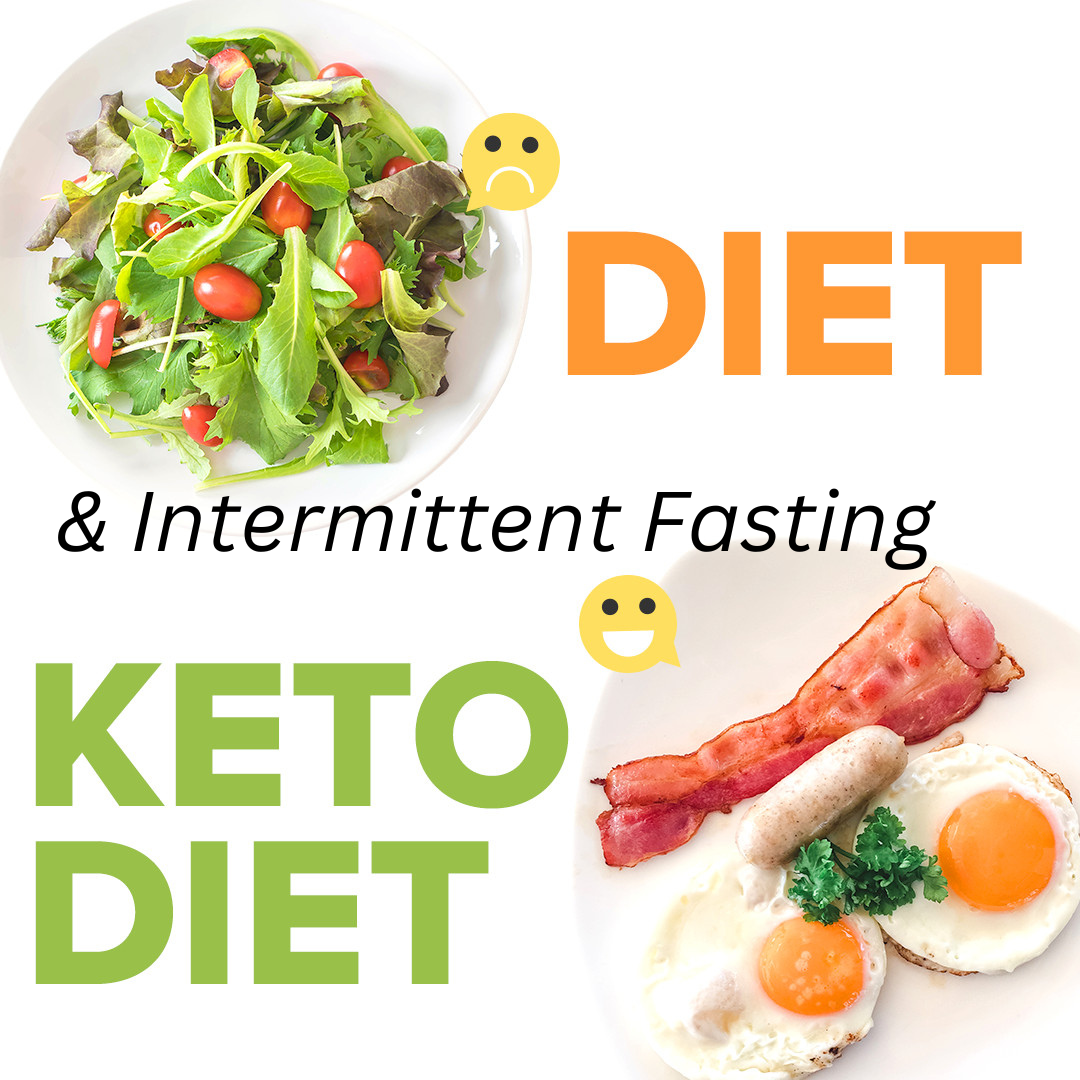In this article:
Intermittent Fasting (IF): IF is an eating pattern where you cycle between periods of eating and fasting, offering benefits like optimal health, weight loss, and blood sugar control.
The Science Behind IF: IF influences insulin, glucagon, and other hormones to regulate energy usage during fasting, facilitating weight loss and blood sugar control.
Real-Life Impact of IF: Numerous anecdotal accounts and scientific studies support the benefits of IF in weight loss, blood sugar control, and achieving optimal health.
Starting with IF: Implementing IF into your lifestyle requires planning, considering factors like work, family, and social commitments, but with time, the body adjusts to the new eating schedule for a healthier life.
Introduction
Introducing the powerhouse of health and wellness – Intermittent Fasting (IF)! Unlike a typical diet plan, IF is not about what you eat but rather when you eat. It’s a unique pattern of eating and not eating, cycling between periods of feasting and fasting. What’s intriguing is that it’s not a new-age fad but a practice dating back to our ancestors who didn’t have food available round the clock.
Now, you may ask, “Why are we reviving an ancient eating pattern?” Well, here’s where the magic happens. IF acts as a master key that opens the door to a realm of significant health benefits. Let’s glance at the big three – Optimal Health, Weight Loss, and Blood Sugar Control.
- Optimal Health: IF brings your body into a state of balance, enhancing your overall health and well-being. It’s like hitting a reset button, allowing your body to rest and recover, leading to improved energy levels, sharper mental clarity, and even potentially reducing the risk of diseases.
- Weight Loss: IF is like a secret weapon for weight loss. How so? During the fasting window, your body exhausts its sugar stores and starts burning fat for energy. It’s like teaching your body to be an efficient fat-burning machine!
- Blood Sugar Control: Hold on, there’s more! IF can be a great tool to help stabilize your blood sugar levels. It can help decrease insulin resistance, meaning it can be particularly beneficial for people struggling with blood sugar management.
In essence, Intermittent Fasting is a simple, yet powerful, approach to eating. It encourages your body to function more efficiently, promoting weight loss, optimal health, and better control of blood sugar levels. So, as we delve deeper, get ready to explore how this time-tested practice can help you unlock the door to a healthier you!
Understanding Intermittent Fasting
Unfolding the details of Intermittent Fasting, it’s all about cycling between periods of eating and not eating. The spotlight isn’t on what you eat but when you do it. That’s right – no more counting calories or cutting out certain food groups!
Detailed explanation of IF and its types
There are various types of IF, all characterized by different fasting and feasting periods. For instance, the 16/8 method involves fasting every day for 14-16 hours, restricting your daily eating window to 8-10 hours. Another popular method is the 5:2 diet, where you eat normally for five days of the week, but restrict your calories to 500-600 on two non-consecutive days.
Importance of IF in today’s lifestyle
Now, let’s touch on the role of IF in today’s fast-paced lifestyle. We live in an era where chronic health issues like obesity, diabetes, and cardiovascular diseases are becoming the norm. Here, IF emerges as a beacon of hope, providing a practical and sustainable way to combat these conditions.
Besides aiding in weight loss and blood sugar control, IF can improve your metabolic health, enhance brain function, and even potentially extend lifespan! But that’s not all. IF can fit into just about any lifestyle. Whether you’re an early riser or a night owl, a busy executive, or a stay-at-home parent, IF can be tailored to your unique schedule, making it an accessible and adaptable health tool.
So, don’t be put off by the term “fasting”. It’s not about starvation, but harnessing the power of when you eat. As we peel back the layers of Intermittent Fasting, you’ll see it’s not a punishing regimen but an empowering lifestyle choice that can lead you on a path towards better health.
The Science behind Intermittent Fasting
Stepping into the universe of Intermittent Fasting, it’s about time we delve deeper into its scientific roots. How does the body transition from feasting to fasting, and what role do our hormones play in this symphony? Let’s decode the mystery!
The Four Stages of Fasting
Fasting isn’t a one-size-fits-all event; it’s a journey through various stages. Picture your body as a well-organized kitchen. Just as a helper would carefully store and retrieve food items, your body regulates energy stores with absolute precision.
- Stage 1 (Up to 4 hours without food): Fresh from a meal, glycogen and insulin are peaking. It’s like your helper stocking up the fridge and freezer.
- Stage 2 (4 to 12 hours without food): Insulin levels stabilize and glycogen drops. Your helper starts to pull food from the fridge. That’s your body burning stored carbohydrates.
- Stage 3 (12 to 14 hours without food): Free fatty acids rise, insulin drops, and glucagon increases. It’s like your helper fetching food from the freezer – your body has now started burning stored fat!
- Stage 4 (14 to 16 hours): This is the Cruising Fasting Window where you reap the primary benefits of fasting.
Further stages: Beyond the 16 hours mark, you enter a phase of heightened autophagy – a cellular detox process.
The Hormonal Orchestra: Insulin, Glucagon, and More
A medley of hormones takes center stage during Intermittent Fasting. Insulin, a hormone released after meals, helps cells absorb glucose for energy or storage. However, in a fasting state, insulin levels drop, prompting fat cells to release stored glucose as energy.
Enter glucagon, insulin’s counterpart, which rises during fasting. Glucagon draws on the body’s stored glucose (in the liver) and fat to keep you energized.
The Energy Saga: Storing and Burning
Our body is quite the energy economist! It stores surplus energy from meals in the liver and muscle cells as glycogen and in fat cells as triglycerides. During fasting, as we’ve seen in the stages, your body first taps into glycogen stores, and then triglycerides (fat) for energy. This switch from burning glucose to fat is the secret behind IF’s weight-loss benefits!
Understanding the science of Intermittent Fasting unravels its true power. It’s not a trendy diet; it’s a lifestyle backed by the intricate biology of our bodies. A journey where you align with your body’s natural rhythms to unlock health and wellness.
Intermittent Fasting and Weight Loss
Now, we step into the territory everyone’s curious about – how Intermittent Fasting and weight loss tie together. Is it all just hype, or is there concrete evidence? Spoiler alert: there’s some serious science backing it up!
The IF Weight Loss Mechanism
When you practice Intermittent Fasting, the body, in its fasted state, turns to its energy reserves – the stored fat. Remember our friend, glucagon? This hormone chips away at your fat stores for energy, gradually leading to weight loss. So, by fasting intermittently, you’re quite literally burning fat. Now, that’s a weight-loss strategy to reckon with!
The Evidence Trail
Scientific studies reinforce IF’s role in weight loss. A 2018 study published in the American Journal of Clinical Nutrition found that subjects following an Intermittent Fasting regimen lost significant weight over 12 weeks. They were also able to maintain this weight loss for a year! No magic, just science.
Real-Life Triumphs: Meet Sarah
Let’s dial down the science for a bit and dive into a real-life story. Meet Sarah, a high school teacher. She struggled with her weight for years until she stumbled upon Intermittent Fasting. Initially skeptical, Sarah decided to give it a shot.
After 6 months of following a 16:8 fasting schedule, Sarah saw the scales shift! She lost 20 pounds, felt more energetic, and even experienced improved sleep. Sarah’s story is a testament to the power of IF. Yes, it takes determination and discipline, but the rewards? Absolutely worth it!
Intermittent Fasting is more than just a weight-loss tool; it’s a transformation of your relationship with food. It isn’t about denying yourself; instead, it’s about finding balance, listening to your body’s rhythms, and breaking free from the shackles of constant eating.
Intermittent Fasting for Optimal Health
You might be wondering, “Can Intermittent Fasting really contribute to optimal health?” The answer is an astounding yes! Intermittent Fasting isn’t only about weight loss or blood sugar control; it’s a master key that unlocks a myriad of health benefits.
IF: The Wellness Game-Changer
From mental clarity and improved focus to enhanced cellular repair and potential reduction of disease risk, the holistic benefits of IF are nothing short of impressive. The logic is straightforward: when your body isn’t occupied with digestion, it can focus on other processes such as cell repair, which can lead to improved health and wellbeing.
The Power of Research
Numerous studies have added substance to these claims. A review in the New England Journal of Medicine, for example, suggests that Intermittent Fasting could aid in fighting against diseases, including heart disease, cancer, and neurodegenerative disorders. This, folks, is the power of aligning your eating patterns with your body’s natural rhythms!
Real-Life Triumphs: Emily’s Transformation
Let me introduce you to Emily, a 45-year-old teacher, who was battling hypertension and high cholesterol levels. Sedentary work, unhealthy eating habits, and stress were taking a toll on her health. Her doctor warned her she was on a dangerous path.
But Emily was determined. She discovered Intermittent Fasting and started following the 16:8 schedule. Along with this, she incorporated daily walks and a healthy diet.
Fast forward six months, Emily’s health parameters significantly improved. Her cholesterol and blood pressure levels dropped within the healthy range, and her energy levels increased. Emily was not just physically healthier but emotionally more resilient.
Emily’s story stands testament to how Intermittent Fasting can indeed be a route to optimal health. So, if you’re looking to unlock your health’s potential, maybe it’s time you gave IF a try! But, before you embark on this journey, don’t forget to have a chat with your health professional.
How to Start with Intermittent Fasting
Venturing into the world of Intermittent Fasting? It may seem daunting initially, but fret not! Here’s a step-by-step guide to help you incorporate IF into your daily life smoothly.
Steps to Begin Your IF Journey
Step 1: Know Your Why Identify your primary motivation for starting Intermittent Fasting. It could be for weight loss, blood sugar control, or overall health. Understanding your ‘why’ helps you stay committed.
Step 2: Choose Your IF Protocol There are several IF protocols to choose from, such as the 16:8, 5:2, or Eat-Stop-Eat. Select the one that aligns best with your lifestyle.
Step 3: Set Your Eating Window Decide on your feeding and fasting windows. If you’re following the 16:8 protocol, you’ll fast for 16 hours and have an 8-hour eating window.
Step 4: Gradual Transition Initially, you may find it challenging to adjust to your new eating pattern. Consider easing into it. Start by delaying your breakfast by an hour or two and gradually extend the fasting period.
Step 5: Monitor Your Progress Keep track of your progress and how your body responds. If required, make necessary adjustments to your IF schedule.
Tailoring Your Eating Window
Your IF schedule should be flexible and adaptable to your lifestyle, factoring in work, family, social commitments, workout, and sleep timings. If you’re a morning person and workout early, an earlier eating window might work best for you. On the contrary, if you’re a night owl, you may prefer a later eating window. Remember, there’s no one-size-fits-all in IF. It’s about finding what works best for you.
Overcoming Challenges
As you kick start your IF journey, you might face some challenges such as hunger pangs, fatigue, or headaches. Stay hydrated, maintain a balanced diet during your eating window, and ensure you’re getting enough sleep. Also, engaging in mild physical activities or hobbies can help distract your mind during fasting periods.
Remember, patience is key. Give your body the time to adapt to this new eating pattern. Rest assured, as your body adjusts to the fasting routine, these initial discomforts should subside.
Embracing Intermittent Fasting can be a transformative journey towards wellness. So, gear up and get ready to unlock a healthier you!
In Summary
As we’ve traversed through the realm of Intermittent Fasting, we’ve uncovered the profound health benefits this lifestyle holds. From supporting weight loss to controlling blood sugar levels and promoting overall health, the impacts are extensive.
We’ve decoded the science behind Intermittent Fasting, delving into the role of insulin, glucagon, and other hormones during fasting, and how our body stores and uses energy.
The stories of real people who’ve embraced IF have further elucidated its potential. We’ve seen how it has transformed lives by assisting in weight loss, regulating blood sugar, and facilitating optimal health.
Integrating Intermittent Fasting into our lives might seem intimidating at first, but remember, it’s all about adaptation. The step-by-step guidance and tips to overcome initial challenges provide a roadmap to navigate this journey smoothly.
As with any new regimen, starting is the hardest part. But once that hurdle is crossed, the potential for a healthier, more vibrant life unfolds. The power to unlock optimal health resides within us, and Intermittent Fasting could be a key to that transformation.
So why not give it a try? Embark on this empowering journey, tune into your body’s natural rhythms, and unleash a healthier, more revitalized version of yourself. Intermittent Fasting isn’t merely a diet; it’s a lifestyle, a pathway to a world of wellness.
Frequently Asked Questions
1. Is Intermittent Fasting as beneficial as they say it is? From my personal journey into the realm of Intermittent Fasting, I can confidently say, it is every bit as beneficial as touted. I found it an effective method for weight loss, blood sugar control, and overall health improvement. However, it’s crucial to note that individual experiences can vary, and while it has a multitude of pros, like any regimen, it might pose certain challenges for some.
2. I’m concerned about feeling hungry all the time. How intense is the hunger during Intermittent Fasting? In my own experience, the initial days of Intermittent Fasting were challenging, with hunger pangs hitting hard. But as my body adjusted to the new eating pattern, I found that these feelings subsided. So, it’s a temporary hurdle in a journey that offers great health rewards.
3. Does Intermittent Fasting help with weight loss better than regular dieting? Personally, I’ve found Intermittent Fasting more effective than traditional calorie restriction diets. This approach not only simplifies meal planning but also promotes weight loss by altering hormone levels and enhancing metabolic health. But remember, consistency is the key, as with any weight loss approach.
4. Can Intermittent Fasting actually control my blood sugar levels? Indeed, Intermittent Fasting has been a game-changer for me when it comes to blood sugar control. Science shows that this lifestyle can improve insulin resistance and lead to an impressive reduction in blood sugar levels. It feels empowering to manage blood sugar without solely relying on medication.
5. How does Intermittent Fasting compare to other popular diet trends like Keto or Vegan diets? Intermittent Fasting, unlike Keto or Vegan diets, doesn’t dictate what you eat but when you eat. I love this flexibility. It allows me to enjoy a broad range of foods without feeling deprived. However, the results are highly individual, and one may prefer Keto’s focus on high-fat foods or Vegan’s plant-based approach over IF.
6. How should I start with Intermittent Fasting? Taking the first step towards Intermittent Fasting felt daunting for me, but creating a plan helped. Start by deciding on an eating window that aligns with your lifestyle, work, family commitments, and workout times. Gradually, your body will adapt to the new rhythm.
7. What are the technical details I should know about Intermittent Fasting? The technical aspect of Intermittent Fasting revolves around understanding the fasting and feeding windows. Common patterns include the 16/8 method, eat-stop-eat, or the 5:2 diet. Choose a pattern that fits your lifestyle and remember, it’s not about starving but about giving your body a break to rejuvenate itself.
8. Is Intermittent Fasting safe for everyone? While Intermittent Fasting has been a boon for me, it’s essential to understand that it might not be suitable for everyone. Certain groups, particularly pregnant women, individuals with eating disorders or those with specific health conditions, should avoid fasting. You must check with your primary care GP before you make changes to your diet and lifestyle.
9. How does Intermittent Fasting contribute to optimal health? Intermittent Fasting has opened a pathway to optimal health for me. It not only helps maintain a healthy weight but also reduces the risk of chronic diseases. I feel more energetic and revitalized, making me believe in its holistic health benefits.
Dive into the world of Intermittent Fasting and experience a transformation that could elevate your wellness journey. I have embraced this lifestyle and reaped its benefits,











